Fighting for a better neurological service in Cork and beyond
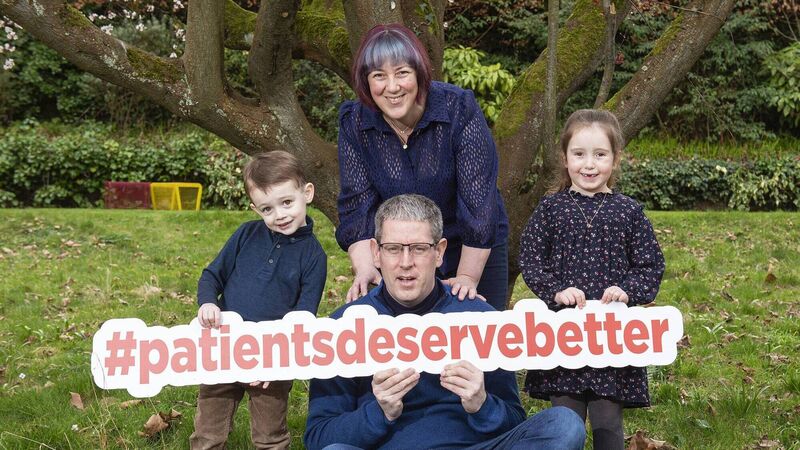
Ivan O’Regan, from Blarney, Co. Cork, Ivan’s partner, Eleanor O’Sullivan and their children Effy (nearly 6) and Ellis (4) O’Regan. Picture: Gerard McCarthy
ONE in three of us will develop a neurological condition at some point in our lives, but in the health service area which includes North Cork, North Lee Cork, South Lee Cork, West Cork and Kerry, there is no community neurorehabilitation team.
Only two such teams exist in Ireland, despite nine being required to cover the country.
While funding has been promised for a network of community teams, the absence of them “is down to a funding issue,” says NAI (Neurological Alliance of Ireland) executive director, Magdalen Rogers. The NAI launched the second round of a campaign called ‘Patients Deserve Better’, just last week.
“Our first campaign last year was around neurology nurse specialists,” said Rogers. “We were delighted with the announcement of 23 additional neurology nurse specialists in the Budget last October. We’re waiting now on the service plan to be announced to see where those nurses are going to be allocated.”
The NAI’s current campaign is calling on the government to provide vital services for people with neurological conditions; everything from Parkinson’s Disease, motor neuron disease, Multiple Sclerosis (MS) and acquired brain injury to strokes.
Magdalen says that 800,000 Irish people are living with a neurological condition.
“We all know at least one person who is affected. We’re great in Ireland to talk about community care or Sláinte, that people should have the right to services as close to their homes as possible. This is the mantra we talk about, community services that would keep people out of hospital and keep them well in their own communities. Community teams have been proven to keep people out of hospital and save money. For every euro spent on these teams, the HSE saves €11 on the cost of keeping people in a hospital bed. So it’s very cost effective and it’s sensible.”
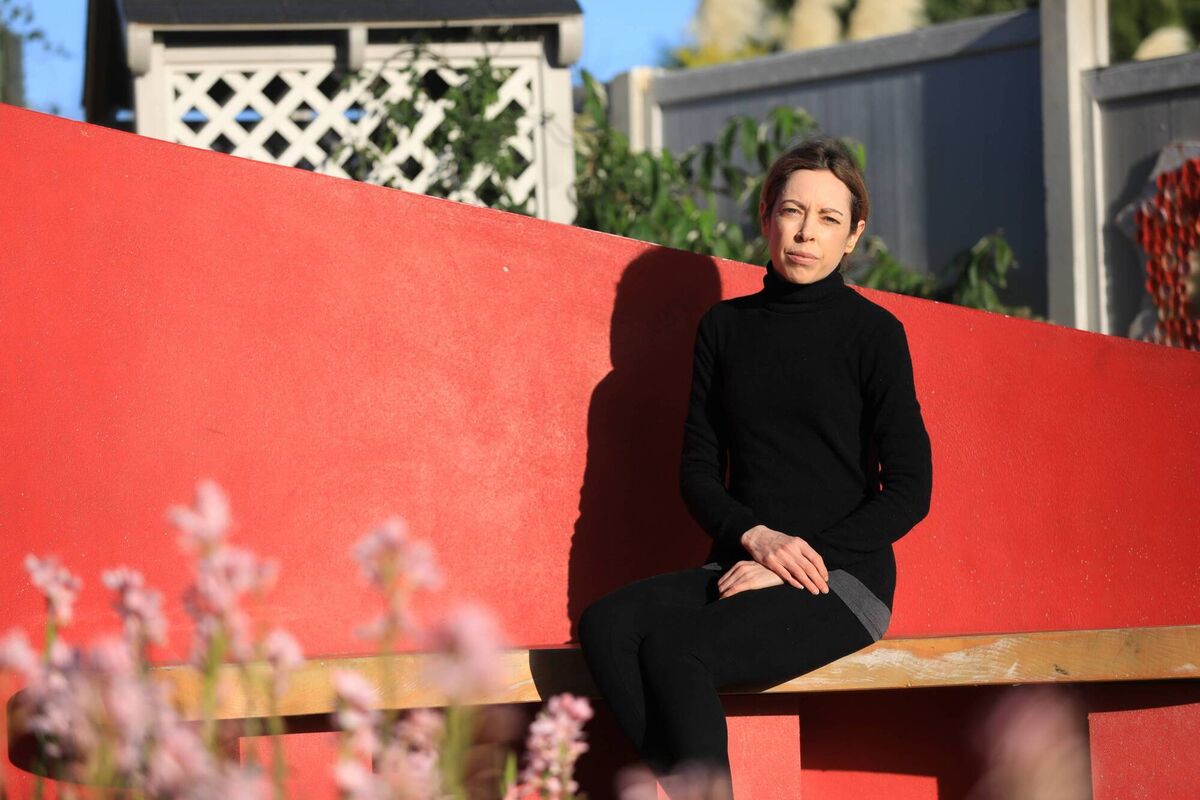
But given the dearth to date of community neurological teams, people speak of falling off a cliff once they come out of hospital, says Magdalen.
“The support and services aren’t there in the community.
"There is no none to talk to, no-one to link people to services. So as well as providing vital therapies like speech and language therapy, occupational therapy and neuropsychology, these teams are a point of contact for families who learn what other services are available in the community.”
People are falling between two stools.
“With the gaps in rehabilitation services, we’re hearing the same stories over and over again from different parts of the country. People are coming out of hospital with conditions like stroke or acquired brain injury. They’re waiting for months. They can’t find the right person to direct them to services. They don’t receive the information in hospital. There isn’t that link to a team in the one place providing all the services they need.”
Magdalen says that people with existing neurological conditions such as MS or Parkinson’s Disease are getting services but they are very fragmented. Ideally, a community team would integrate the care and provide it all in the one place.
“With rehabilitation, getting it early is vital. People get excellent care in the hospital systems but it’s when they go out into the community, they need to have a pathway so that there are no gaps or delays. They should go straight from the care in hospital to services in the community, maintaining the gains they’ve made in hospital.
“Many of us have experienced physiotherapy or speech and language therapy. It has to be frequent. You can’t have gaps in your care.
“The community teams literally take people from the hospital door and into the longer term for getting better. For conditions that are progressive like MS, Parkinson’s Disease or Huntington’s Disease, early intervention is vital to prevent people from deteriorating any further, to keep they gains they have for as long as possible.”
The NAI campaign is aimed at elected representatives.
“We have a dedicated campaign website www.patientsdeservebetter.ie through which people can contact their local TDs to inform them about the need for community neurorehabiltation teams in their area. It really should be a political priority,” said Magdalen.
“There is a commitment in the Programme for Government to put nine teams in place. This was published in 2019 and here we are in 2023 with only two teams up and running.”
Magdalen says that when the NAI launched the campaign for neurology nurse specialists, “the issue of recruitment was highlighted. All we’re hearing is that we can’t recruit people, that they are emigrating. But nurses themselves were saying to us that if posts were created, there would definitely be interest in them.
“There are people who are very committed to working in the area of neurological conditions. They want to specialise and deliver services. We really need to respond to the need. This really is a health crisis of the future as more and more people develop neurological conditions.”
See https://www.nai.ie/
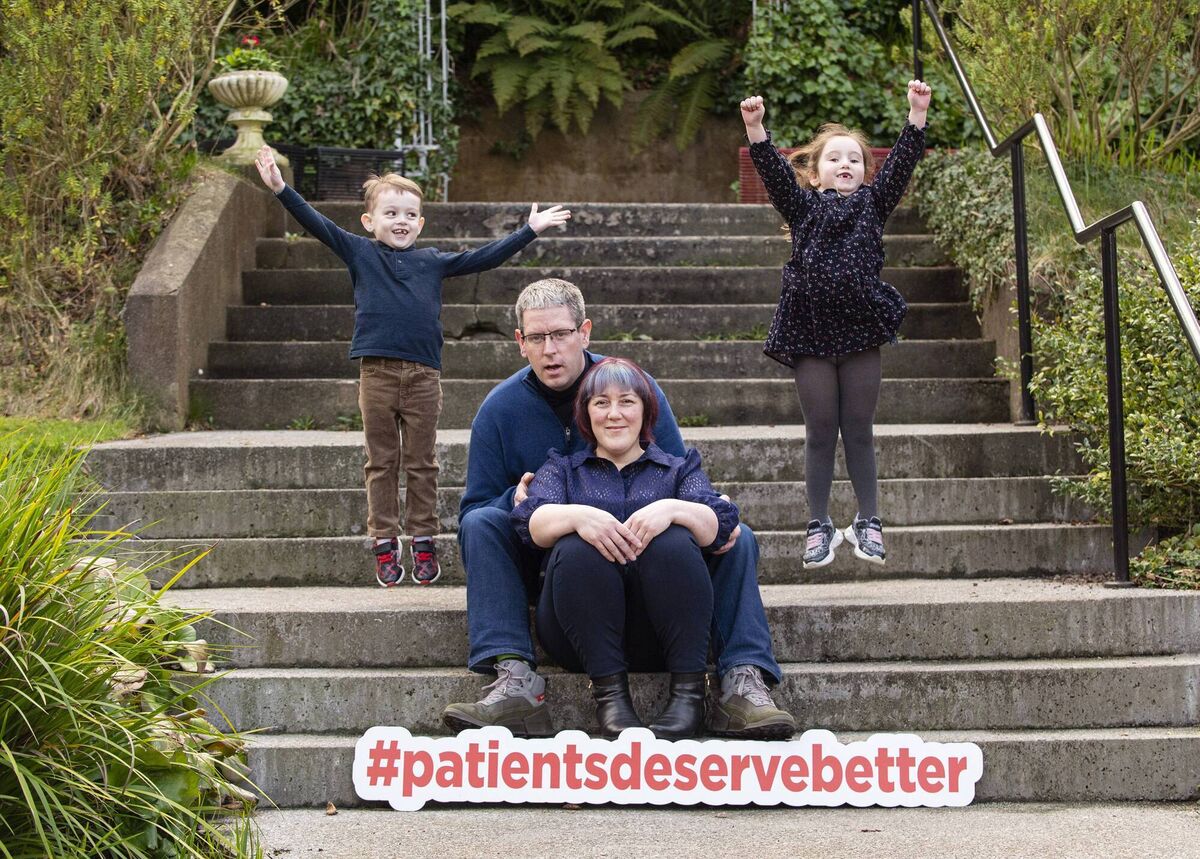
ONE CORK MAN’S STORY
Ivan O’Regan, 42, living in the Blarney area, was diagnosed with Parkinson’s Disease when he was 31. He says he may have acquired the brain disorder from working with pesticides when he was younger.
This time last year, Ivan underwent Deep Brain Stimulation surgery (DBS).
“The doctors put two wires into the middle of my brain. They were wired down to my chest. I have a battery in my chest. It’s a unit that programmes everything. It got rid of the symptoms of my Parkinson’s.
“Prior to me having surgery, my days involved sitting. I would spend hours in the chair unable to move. I never really had a tremor which is associated with Parkinson’s Disease. I had slowness of movement and stiffness. Now, I’m able to move 24/7.
“I was in Dublin two weeks ago for my 12 month review. All went well. It’s quite a process. Because I’ve had DBS, I’m able to see a physiotherapist and a speech and language therapist as well as a cognitive psychologist. I also have a six month review. That’s basically what a neurorehabilitation team is about.
“I’ve been lucky in that I had DBS in Dublin (in Beaumont Hospital) but in the Cork and Kerry region, there is nothing. When I was told by my neurologist that I had Parkinson’s, that was it. I had nowhere to go except on the internet to see what to do.”
Now, Ivan, a father-of-two, goes out and about talking about DBS. He says that unfortunately, not everyone can be assessed and approved for DBS.
A member of the Cork Parkinson’s Association, Ivan meets other people with the condition on Zoom calls.
“I’m also part of a WhatsApp group for people with early onset Parkinson’s. There’s a few people on that who seem to be struggling an awful lot. In my own case, just before the pandemic, I would have struggled big time with depression which can be part of Parkinson’s Disease. I spent nearly three weeks in St Patrick’s Hospital in Dublin with it. But if there was a neurorehabilitation centre in Cork, there would be a psychologist that you could talk to.
“Basically, the minute you’re diagnosed, you should be pointed in the direction of some sort of centre and have someone there assigned to you.”
Ivan had to give up his job as an accountant with Dairygold. He misses work but on the plus side, he is very involved in his children’s lives; Effy is nearly six and four year old Ellis.
“Before the DBS, they would say ‘daddy, are you moving?’
“My partner Eleanor asked the two of them last week if they remembered when I couldn’t move. They both said ‘no’.”
It used to take Ivan “a couple of hours in the morning to get going. If I wanted to get out of the bed, Eleanor would either push me or I’d pull myself out, slowly.
“I don’t know what I’d have done without the DBS. I was the seventh person in Ireland to get it done.
“I was fortunate with my age and my symptoms. That’s what pushed me up the list.”


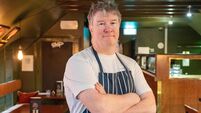
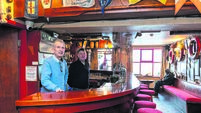



 App?
App?


